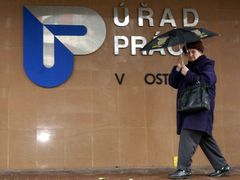Prague - The currently busy shops may not show it but life is becoming more expensive in the Czech Republic.
Compared to a year ago the November inflation rate rose 5%, which is the highest inflation rate since August 2001. The year-to-year growth of consumer prices have thus shown a pick up by 1% compared to October figures, the Czech Statistical Office announced on Monday.
The inflation rate rise was mainly spurred by the 4% food and non-alcoholic beverage price increase. It is the highest month-to-month consumer price growth since January 1993. November consumer prices rose 0.9% from the October's figures.
More expensive Christmas
If you happen to be in shops overcrowded with Christmas shoppers these days, you would find it hard to believe that a majority of food product prices have risen, out of which bread and rolls have shown the biggest price hike.
We are also going to pay more for eggs, milk, cheeses, oil, fat, butter and some vegetables since now on.
"Unfortunately, it is clear now the next year inflation rate will have the number 6 at the beginning," says Michal Brožka of Raiffeisenbank.
"The reason for that is the increase of the lowered VAT, consumer tax for cigarettes, continuing deregulation of rent prices and increase of energy prices," adds Brožka.
The inflation has been at the centre of the central bank's attention. The Czech National Bank has increased the basic interest rate towards the end of November up to 3.5%, which is the highest in the past five years. Loans will become more expensive then, which will affect particularly mortgages.
The unemployment is down
The Czech unemployment rate has fallen to 5.6 % in November. On month-to-month comparison it is the biggest decline since 1991, said the Ministry of Labor and Social Affairs on Monday.
The experts say the number of people looking for a job should continue the downward trend. "The average unemployment rate should drop to 6.1 percent according to our estimate. Next year it should fall to 5.5 percent," says Pavel Mertlík, a main analyst of Raiffeisenbank.
According to the experts next year the country should achieve so-called full employment. The experts predict it will result in a huge pressure on inflation and increase of foreign labor influx.
At the moment the Employment Office registers 341.438 persons, that means 91.000 less than a year ago. The number of people who are looking for a suitable job and could start right away is 312.000.
The Employment Offices offer 140.000 vacancies. That is by 40.000 less compared to 2006 November numbers.
Women, handicapped people and graduates
Among the groups of people who are most disadvantaged in finding a job are women. They form 55.1% of the total number of the jobless. Thus the statistics prove it is much more difficult for women to find a job than for men. There are about 188.000 women without a job.
People with disabilities represent 18 % of the unemployed. The Employment Office registers 64.000 unemployed persons with disabilities, which is one fifth of the total number of the unemployed.
There is also a high percentage of graduates who cannot find a suitable job. Despite of the fall by 10.000 from last year's figures, the jobless graduates still constitute 7% of the total number of the unemployed.


